- Home
- Неизвестный
8 Great Hebrew Short Novels Page 25
8 Great Hebrew Short Novels Read online
Page 25
Mrs. Gottlieb was a diligent woman. Yet she never appeared to be busy, whether working at home or in the garden. And even when she paused in the midst of her chores it seemed as though she had just arrived to admire the job done. I sought her out at least seven times a day, yet I never felt I was intruding upon her affairs. During my stay with the Gottliebs we evoked the memory of my mother, may she rest in peace. And at that time Mintshi told me how Mazal had loved my mother, may she rest in peace, and how she had loved him in return, but her father had opposed their union for he had already promised her hand in marriage to my father.
I lay on my bed at night, asking myself, What if my mother had married Mazal? What would have become of me? I knew such speculations to be fruitless, and yet I did not abandon them. When the trembling that accompanied my musings finally ceased, I said: Mazal has been wronged. He seemed to me to be like a man bereft of his wife and yet she was not his wife.
And summer dragged on. All day long I lounged under the oak and birch trees and stared into the blue sky. Sometimes I strolled to the factory and chatted with the herb gatherers. They were as carefree as the birds of the field and their spirits never seemed to dip even for a single day. I will wander in the woods with them and forget my sorrows, I told myself. But I did not join them, nor did I escape into the woods, and I lay idle for hours on end. “Look, our friend is boring a hole through the heavens,” Mr. Gottlieb said laughing as he saw me staring up at the sky. And I laughed along with him, though with a heavy heart.
How I loathed myself. I burned with shame without knowing why. At times I pitied my father and at times I secretly grew angry at him. And I poured my wrath upon Mazal as well. I recalled the fluttering blows of the grasshopper against the walls of our home at the onset of spring, but death no longer frightened me. Sometimes I asked myself: Why did Mintshi Gottlieb upset me by telling me of bygone memories? A father and mother, are they not man and woman, and one flesh? Why then should I brood over secrets from before my time? Yet I thirsted to know more. I could not calm myself down, nor could I sit still for a moment. And so I told myself, If Mintshi knows what happened, surely she will tell me the truth. But how will I open my mouth to ask? For my face turns crimson at the mere thought of speaking. I gave up all hope—I would never know the rest.
One day, however, Gottlieb left for an long journey and Mintshi asked me to sleep in her room. And again she began to speak of my mother and Mazal. And what I had least expected was told to me.
“Mazal was still a young man when he arrived here. He had left Vienna to travel around the rural townships and he came here as well. He came to see the town, and since coming to our town some seventeen years ago, he has never left.” Mintshi spoke in a low voice and a cold gust of air rose from her words. It was the very chill I had felt upon touching my brow against the marble slab of my mother’s headstone, may she rest in peace. Mintshi swept her left hand across her brow and exclaimed, “What more can I tell you that I haven’t already said?” She then shut her eyes as though in a dream. Mintshi suddenly started awake and fetched a bound diary that was popular among educated girls a generation ago. “Read this,” she said, “for I have copied Mazal’s journals. I have copied all that he wrote in those days.” I took the notebook that Mrs. Gottlieb had copied and slipped it into my bag. I never read in Mintshi’s room at night since the light of a candle prevented her from falling asleep. And the following morning I read all that was written in the book:
How I love the rural townships during the summer months. The market is hushed, a town and its inhabitants, a pot with flowers that peer out and no one to admire them. Her sons are in hiding, the sun has driven them into their homes, and I walk solitary in a peaceful land. I am a student at the university and God has led me forth to one of the towns. As I stood in the street I saw a woman standing by a window and she placed a bowl of millet on its sunlit sill. I bowed to her and said, “Won’t the birds feast on your millet?” I had barely finished my sentence when a young girl appeared at the window and she stared at me and mocked my words. I was nearly put to shame and lest the young girl sense my confusion I said to her, “May I have some water please?” The young girl then offered me a glass of water from the window. “Why have you not asked the man in to rest?” the woman said to the girl. “Does he not live in a foreign city?” And she said, “Come in, sir, come in.” And I turned and entered the house.
The household appeared prosperous and a man in his prime sat over the Gemara. He had dozed off over his books and he now awoke and greeted me and asked, “Who are you and what brings you to our town?” I returned his greeting and replied, “I am a student and have come to see the countryside during my vacation.” They were struck with wonder at my words. “Look now and see for yourself,” the man said to the girl. “The learned come from afar to admire our town, and all you ask is to leave us and our town. Now you can banish that thought.” The young girl listened and remained silent. Her father asked me, “So you are studying medicine, you wish to become a doctor?” “No, sir,” I replied, “I am studying philosophy.” The man was surprised to hear this and said, “I always said philosophy wasn’t to be learned in school, for the true philosopher is the man who ponders scholarly books and fathoms their meaning.”
The day waned and the man told the girl, “Bring me my sash and I will recite the minhah. Don’t feel embarrassed at my reciting the afternoon prayer.” “I too will pray,” I exclaimed. “Bring me the prayerbook,” he said. She then hurried to fetch the prayerbook. And he took the prayerbook and showed me the passage we would read. “Sir,” I said, “there is really no need, I know the prayer well.” The man was surprised to hear that I knew the prayer by heart. He gestured toward the east where an embroidery hung on the wall, and I read all that was inscribed on the mizrah:
Blessed is he who shall not forsake Thee
And he who shall cleave unto Thee.
For those who seek Thee shall not fail
Nor shall they be put to shame
Those who seek and dwell within Thee.
As soon as I had finished praying I extolled the mizrah, for indeed it was splendid. My words, though, were like the sun’s dying rays at dusk, illuminating only the fringes of the east, while the whole is left in darkness, for I could utter but a fraction of the praise that swelled within me.
The woman set the table and bid me share their meal. The dishes were placed before us and we ate. Although the food was not abundant, consisting of just cornmeal with milk, we nevertheless lingered over it as the man spoke of all that had happened to them, for he had once been wealthy, trading with the landed gentry and investing his money in field crops. Such was his way year after year. But riches are not everlasting. The owner of the estate did not keep to his side of the agreement. Money he took but produce he did not give. A bitter and prolonged quarrel ensued between the two men and what remained of the fruits of his labor was frittered away in legal fees. Though bribing is a criminal offence and it is forbidden to bribe a state judge—and even the gentile is subject to the laws of the land—the overlord offered the judge gifts so that the verdict would not go against him. “Eternity may well come to an end,” he said, “and still I’d not have told you all that came to pass in those days. My adversary slandered me with false accusations and my eldest son, though disabled and exempt from serving the Kaiser, was pressed into the army, and the same overlord was a high-ranking officer and my son died under the crush of his iron fist.”
“But a man should not mourn the loss of imaginary possessions, blessed be the Holy Name for He has not taken His merciful eye from us. Even though the Almighty has not entrusted me a second time with wealth and happiness, I bless the Lord daily, for we are not lacking in food. But whenever I call to mind the inflictions wrought upon my son, I am tempted to choose death over life.”
The members of the household dried their tears and the woman asked her husband, “If he were alive today, how old would he be?” “What sort of woman-talk is this?�
� he answered. “Do not lay reproach on the Almighty; the Lord giveth and the Lord taketh, blessed be the name of the Lord. How splendid are the words of Rabbi Meir Ben Yehiel Mikhal, blessed be his memory, concerning the passage, he shall shave his head over the loss of property, for it is forbidden to do so over the dead.”
The oil in the lamp was nearly spent and I rose from the table and asked, “Tell me please, is there an inn somewhere in town, for I will not be able to continue on my way tonight.” The man and woman conferred and said, “There are a number of inns but who knows if you will find comfort in any one of them. Ours is a small town and the inns are of the plainest sort, for respectable guests seldom come here and anyone who isn’t accustomed to such conditions will not find such inns very restful.” The man glanced at his wife and said, “A stranger shall not sleep outside. I will open my door to a guest.”
The young girl then brought a candle and lit it and placed it on the table as the oil in the lamp was spent. We sat together for another hour. They did not tire of hearing about the wonders of Vienna where the Kaiser lives. I felt deeply drawn to their way of life. Later that evening they prepared an extra bed for me in a corner of the house and I fell into a deep and peaceful sleep.
And I started awake at the sound of a man’s footsteps. The master of the house stood by my bed, his prayer shawl and phylacteries under his arm and the Morning Prayer on his lips. “Ah, sir,” I cried out, “you are on your way to pray while I lie in the lap of indolence.” The man smiled. “I have already prayed,” he said. “I am on my way back from the synagogue, but be at ease, my son.” And seeing my discomfort, he added, “If you have slept soundly then lie back and rest; the time will come soon enough when there will be no sleep. But if you are awake then rise and we will breakfast together.” After eating I made to pay for my food. The woman and her daughter drew back in shame and the man smiled and said, “Such are the ways of the city dweller, they do not know that an act of charity is honored and that it is a sacred duty to invite a guest into one’s home.” I thanked them for letting me stay in their home for the entire night and morning. “Blessed are you in the eyes of the Lord for your kindness,” I exclaimed. And as I turned to leave, the man inquired, “Where will you now go?” “I will walk the length and breadth of the town,” I answered, “for that is why I have come.” “Go then in peace,” said the man. “But return to eat with us at noon.” “I am unworthy of such kindness,” I said. Then I set out in the direction of the town. I soon arrived at the Great Synagogue which housed a rare prayerbook whose gilt letters were inscribed on deerskin parchment. But the gold was obscured by a film of smoke that had risen from those martyred in the name of the Holy One and had seeped through and blackened the pages. Then I walked over to the Beit Midrash. The sun’s rays beat against its walls. The pupils had removed their coats as they sat down by the altar and they were surprised to see me. They implored me to speak of other houses of learning, and visions of distant places lit up their eyes. And I left the House of Study and turned towards the forest. I was overwhelmed with grief as I approached the green and somber woods. And I fell to my knees and lay amid the scrub by the oak trees. The Lord’s mercy did not leave me. Suddenly I remembered I had been invited to lunch and I rose and returned to their home.
The members of the household reproached me as I entered, “We waited for you and you did not come. We thought you had forgotten us and so we ate without you.” “I went for a walk in the forest,” I explained. “I am late and now I will be on my way.” But the woman looked at me and said, “You will go nowhere before having eaten.” And she fried me some eggs. “The cantor will pass before the Ark of the Law,” said the master of the house, “he will pray in the synagogue. Eat something, and then come with me to the synagogue. The bed we prepared for you yesterday is still in its place. Sleep with us another night and tomorrow you will be on your way.”
I do not play an instrument nor can I carry a tune. And I do not know much about music, nor do I understand it. When dragged to the opera I sit and count the windows. But I now told the master of the house, “Very well, I will accompany you.” I will not describe the cantor’s singing, nor will I speak of what was on my mind just then. Rather I will speak of what I did when we returned.
I returned with the man and after eating we ventured out and sat on the doorsteps of his home. So, I told myself, have I not longed to travel the length and breadth of the countryside? If I stay here one more day I will surely use up all the days of my vacation. It is fine to explore the countryside, my heart cried out suddenly, but to sit here is even better. I was in good and robust health and in those days the thought of rest never even crossed my mind. It was like one of those notions a man acquires without knowing how it might bear on his own life. Alas, those days have passed and are gone and whatever peace of mind I had has been swept away with them. The following morning I asked the members of the household, “Tell me, do you happen to have a spare room, as I wish to remain in your company for the rest of the vacation.” So they led me to their succah, a festival booth that also served as a room. “Remain here as long as you wish,” they said. And the woman prepared my meals, while I in turn taught their daughter language and literature.
I sit in the home of these good people. They have vacated a special room for me—the festival booth built as a room. There is even a small stove in the booth. Some will say it has no use, but soon enough winter will come and we will warm ourselves by its heat. And I sit in my rooftop room and look down at the town. From my perch I can see the huge marketplace where women sit, their baskets laden with vegetables. They sell the rotten ones while they keep the good ones until they rot too. And there is a well in the center of the market with water gushing from its two spouts, and the country girls draw from its source. A Jew suddenly approaches one of the young girls, desiring to drink from her pitcher. “Jew,” I call out from my garret, “why do you drink drawn water? Don’t you have the whole well in front of you? And spring water at that?” But the Jew does not hear me. For he is hunched over while I dwell in the heights.
And a new voice resounded in the house. The voice of a young woman. I folded my coat behind the windowpane to catch a glimpse of myself before descending to see the young woman. Leah introduced me to her friend Mintshi. I greeted her with a bow. Returning to my room I spent the rest of the day lost in delusions and fancied Mintshi lived in the capital, and while there she had witnessed the respect lavished on me when my poems were praised in public. When she returned home, her mother said that a man had lodged in her room. “And what’s his name?” she asked. “Akaviah Mazal.” Then her heart skipped a beat, for she had had the privilege of knowing me. My God, how I held my head high. And I buried myself in The Book of the Righteous; perhaps it would extinguish the glowing ember of lust burning within me. But I could not put it out and I sought comfort in moral precepts: You shall love the Lord your God, et cetera, with both inclinations—the good and the bad—taught the Sages of blessed memory. If only it were so.
The students at the Beit Midrash were delighted to see me. They sought to study the ways of the Enlightenment—and is there a better teacher than I? Today two boys came to see me and instead of reading the Gemara they pored over the contents of profane books. And in my presence one of the boys started to read a German poem, and the one chanted while the other read. My students sigh and ask only to know the ways of the Enlightenment. As for me? My only desire is to follow in the path of the Lord all the days of my life.
What is God’s path? A man takes to the road and his strength fails him. His knees buckle and his tongue is parched. He stumbles seven times and rises without reaching his longed-for destination. The road is long and the illusions are myriad. The man will then say to himself: Perhaps I have strayed from the path, this is not the way. And he will turn off the path he first took. And turning off the path, he sees a light flickering in the distance. Although he does not know yet whether this is the right way, who will say that the man err
ed in choosing a path different from the first? Even though I am a teacher of the “Enlightenment,” I declined the boys’ request. How will I provide for myself if the lining of my purse is empty? I am like a thief who stumbles upon a bundle of coins, returns the bundle to its owner, and then snatches the money back from the owner’s pocket, for he is a thief and cannot live otherwise. I teach Leah and her friend Mintshi, as well as the sons of the rich. My friends mock me in their letters, and my father, seeing that I have abandoned my studies at the university, weeps for my fate daily. Summer swept by and my vacation drew to an end, but I did not return home.

 The Bolivian Diary
The Bolivian Diary Caffeine Blues_ Wake Up to the Hidden Dangers of America's #1 Drug ( PDFDrive )
Caffeine Blues_ Wake Up to the Hidden Dangers of America's #1 Drug ( PDFDrive ) The Empty House
The Empty House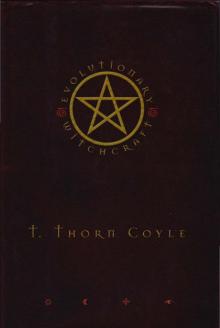 T Thorn Coyle Evolutionary Witchcraft (pdf)
T Thorn Coyle Evolutionary Witchcraft (pdf)![K J Emrick & Kathryn De Winter - [Moonlight Bay Psychic Mystery 01-06] - A Friend in; on the Rocks; Feature Presentation; Manor of; by Chocolate Cake; A-Maze-Ing Death (retail) (epub) Read online](http://freenovelread.comhttps://picture.efrem.net/img/nienyi/k_j_emrick_and_kathryn_de_winter_-_moonlight_bay_psychic_of_by_chocolate_cake_a-maze-ing_death_retail_epub_preview.jpg) K J Emrick & Kathryn De Winter - [Moonlight Bay Psychic Mystery 01-06] - A Friend in; on the Rocks; Feature Presentation; Manor of; by Chocolate Cake; A-Maze-Ing Death (retail) (epub)
K J Emrick & Kathryn De Winter - [Moonlight Bay Psychic Mystery 01-06] - A Friend in; on the Rocks; Feature Presentation; Manor of; by Chocolate Cake; A-Maze-Ing Death (retail) (epub) Next Day of the Condor
Next Day of the Condor Onyx
Onyx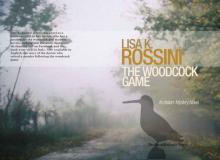 The Woodcock Game: An Italian Mystery Novel
The Woodcock Game: An Italian Mystery Novel Granta 122: Betrayal (Granta: The Magazine of New Writing)
Granta 122: Betrayal (Granta: The Magazine of New Writing)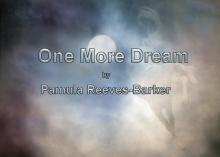 One More Dream
One More Dream Cosa Nostra by Emma Nichols) 16656409 (z-lib.org) (1)-compressed
Cosa Nostra by Emma Nichols) 16656409 (z-lib.org) (1)-compressed Cowboy by J. M. Snyder
Cowboy by J. M. Snyder Colossus
Colossus Star Trek - DS9 011 - Devil In The Sky
Star Trek - DS9 011 - Devil In The Sky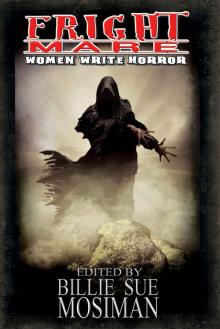 Fright Mare-Women Write Horror
Fright Mare-Women Write Horror The Future Is Japanese
The Future Is Japanese In the Witching Hour
In the Witching Hour Mammoth Books presents Wang's Carpets
Mammoth Books presents Wang's Carpets The Cradle King: The Life of James VI and I, the First Monarch of a United Great Britain
The Cradle King: The Life of James VI and I, the First Monarch of a United Great Britain Stalking Moon
Stalking Moon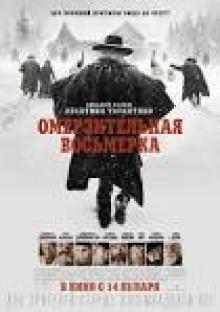 Hostage To The Devil
Hostage To The Devil![Harris, Daisy - Mere Passion [Ocean Shifters 2] (Siren Publishing Classic) Read online](http://i1.bookreadfree.com/i/03/23/harris_daisy_-_mere_passion_ocean_shifters_2_siren_publishing_classic_preview.jpg) Harris, Daisy - Mere Passion [Ocean Shifters 2] (Siren Publishing Classic)
Harris, Daisy - Mere Passion [Ocean Shifters 2] (Siren Publishing Classic) Day, Sunny - Hot in Space (Siren Publishing Ménage and More)
Day, Sunny - Hot in Space (Siren Publishing Ménage and More) Five Books Of The Lives, Heroic Deeds And Sayings Of Gargantua And His Son Pantagruel
Five Books Of The Lives, Heroic Deeds And Sayings Of Gargantua And His Son Pantagruel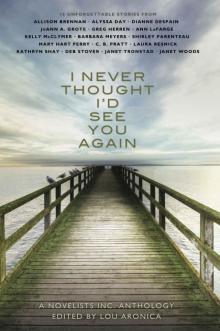 I Never Thought I'd See You Again: A Novelists Inc. Anthology
I Never Thought I'd See You Again: A Novelists Inc. Anthology Billion dollar baby bargain.txt
Billion dollar baby bargain.txt![Chenery, Marisa - Turquoise Eye of Horus [Egyptian Shifters 1] (Siren Publishing Classic) Read online](http://i1.bookreadfree.com/i1/03/26/chenery_marisa_-_turquoise_eye_of_horus_egyptian_shifters_1_siren_publishing_classic_preview.jpg) Chenery, Marisa - Turquoise Eye of Horus [Egyptian Shifters 1] (Siren Publishing Classic)
Chenery, Marisa - Turquoise Eye of Horus [Egyptian Shifters 1] (Siren Publishing Classic) Cat Magic
Cat Magic Star Trek - DS9 - Warped
Star Trek - DS9 - Warped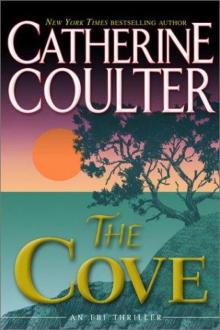 Catherine Coulter - FBI 1 The Cove
Catherine Coulter - FBI 1 The Cove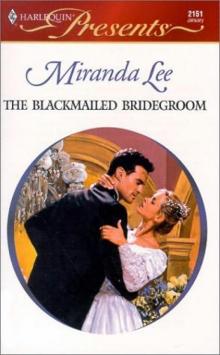 Miranda Lee -The Blackmailed Bridegroom
Miranda Lee -The Blackmailed Bridegroom The Seashell Anthology of Great Poetry
The Seashell Anthology of Great Poetry Dragon Moon
Dragon Moon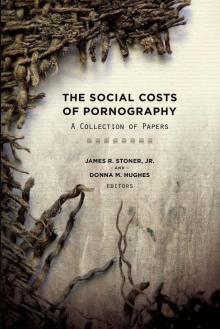 The Social Costs of Pornography: A Collection of Papers
The Social Costs of Pornography: A Collection of Papers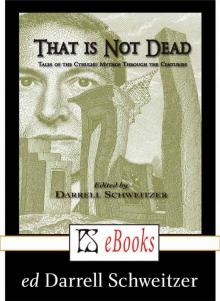 That Is Not Dead
That Is Not Dead Best New Horror: Volume 25 (Mammoth Book of Best New Horror)
Best New Horror: Volume 25 (Mammoth Book of Best New Horror) This Christmas by J. M. Snyder
This Christmas by J. M. Snyder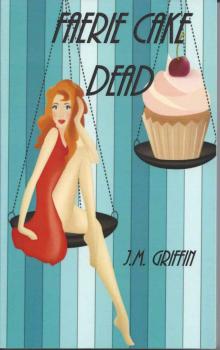 Faerie Cake Dead
Faerie Cake Dead CS-Dante's Twins
CS-Dante's Twins EFD1: Starship Goodwords (EFD Anthology Series from Carrick Publishing)
EFD1: Starship Goodwords (EFD Anthology Series from Carrick Publishing)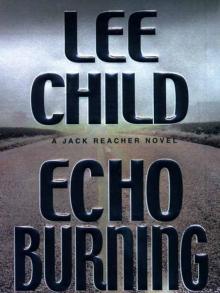 Echo Burning by Lee Child
Echo Burning by Lee Child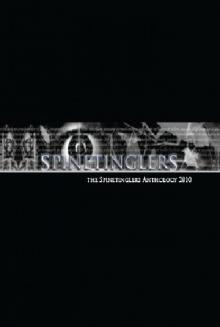 The Spinetinglers Anthology 2010
The Spinetinglers Anthology 2010 Wild Hearts
Wild Hearts Violet Winspear - Sinner ...
Violet Winspear - Sinner ...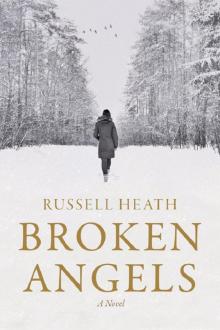 Broken Angels
Broken Angels FearNoEvil
FearNoEvil![Santiago, Lara - Range War Bride [Tasty Treats 11] (Siren Publishing PolyAmour) Read online](http://i1.bookreadfree.com/i1/03/30/santiago_lara_-_range_war_bride_tasty_treats_11_siren_publishing_polyamour_preview.jpg) Santiago, Lara - Range War Bride [Tasty Treats 11] (Siren Publishing PolyAmour)
Santiago, Lara - Range War Bride [Tasty Treats 11] (Siren Publishing PolyAmour)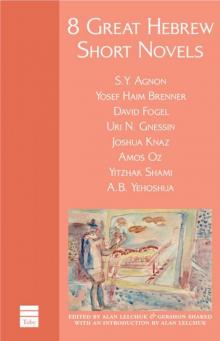 8 Great Hebrew Short Novels
8 Great Hebrew Short Novels This Is How You Die: Stories of the Inscrutable, Infallible, Inescapable Machine of Death
This Is How You Die: Stories of the Inscrutable, Infallible, Inescapable Machine of Death The Steampowered Globe
The Steampowered Globe While We Wait by J. M. Snyder
While We Wait by J. M. Snyder Iron Tongue cr-4
Iron Tongue cr-4![Stieg Larsson [Millennium 02] The Girl Who Played with Fire v5.0 (LIT) Read online](http://i1.bookreadfree.com/i1/03/31/stieg_larsson_millennium_02_the_girl_who_played_with_fire_v5_0_lit_preview.jpg) Stieg Larsson [Millennium 02] The Girl Who Played with Fire v5.0 (LIT)
Stieg Larsson [Millennium 02] The Girl Who Played with Fire v5.0 (LIT)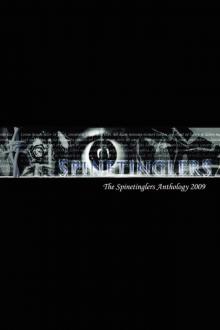 The Spinetinglers Anthology 2009
The Spinetinglers Anthology 2009 Bowles, Jan - Branded by the Texas Rancher (Siren Publishing Classic)
Bowles, Jan - Branded by the Texas Rancher (Siren Publishing Classic) Brown, Berengaria - Vivienne's Vacation (Siren Publishing Ménage and More)
Brown, Berengaria - Vivienne's Vacation (Siren Publishing Ménage and More) Inheritors
Inheritors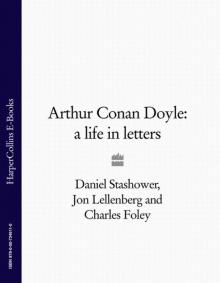 Arthur Conan Doyle: A Life in Letters
Arthur Conan Doyle: A Life in Letters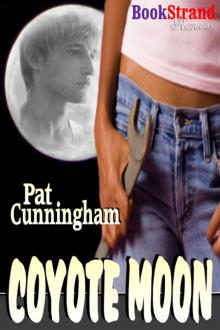 Cunningham, Pat - Coyote Moon (BookStrand Publishing Romance)
Cunningham, Pat - Coyote Moon (BookStrand Publishing Romance) Static Line
Static Line Ghost Mysteries & Sassy Witches (Cozy Mystery Multi-Novel Anthology)
Ghost Mysteries & Sassy Witches (Cozy Mystery Multi-Novel Anthology) Elizabeth Neff Walker - Puppy Love
Elizabeth Neff Walker - Puppy Love Ghosts in the Machine
Ghosts in the Machine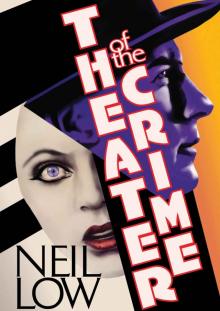 Theater of the Crime (Alan Stewart and Vera Deward Murder Mysteries Book 6)
Theater of the Crime (Alan Stewart and Vera Deward Murder Mysteries Book 6)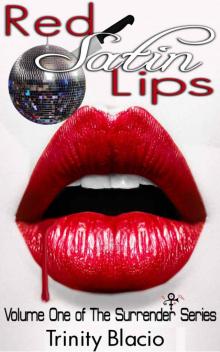 Red Satin Lips, Book One (The Surrender Series)
Red Satin Lips, Book One (The Surrender Series) Catherine Coulter - FBI 4 The Edge
Catherine Coulter - FBI 4 The Edge StateoftheUnion
StateoftheUnion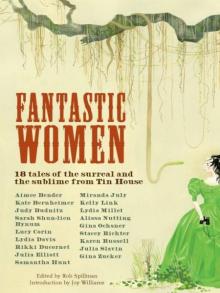 Fantastic Women: 18 Tales of the Surreal and the Sublime from Tin House
Fantastic Women: 18 Tales of the Surreal and the Sublime from Tin House Sara Wood-Expectant Mistress original
Sara Wood-Expectant Mistress original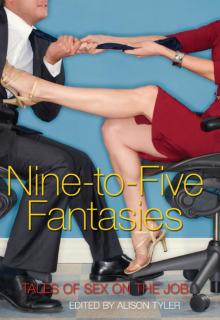 Nine-to-Five Fantasies: Tales of Sex on the Job
Nine-to-Five Fantasies: Tales of Sex on the Job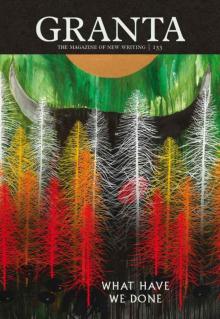 Granta 133
Granta 133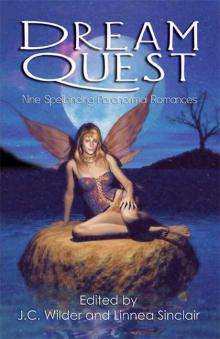 Dream Quest
Dream Quest The Warlock in Spite of Himself wisoh-2
The Warlock in Spite of Himself wisoh-2 Glenn, Stormy - Mating Heat (Siren Publishing Ménage Amour)
Glenn, Stormy - Mating Heat (Siren Publishing Ménage Amour) Davis, Lexie - Toys from Santa (Siren Publishing Classic)
Davis, Lexie - Toys from Santa (Siren Publishing Classic) Once Dead, Twice Shy
Once Dead, Twice Shy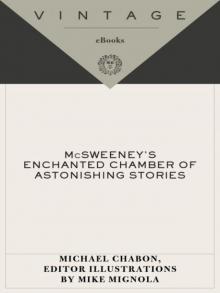 McSweeney's Enchanted Chamber of Astonishing Stories
McSweeney's Enchanted Chamber of Astonishing Stories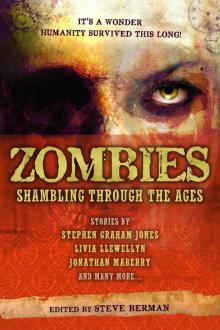 Zombies: Shambling Through the Ages
Zombies: Shambling Through the Ages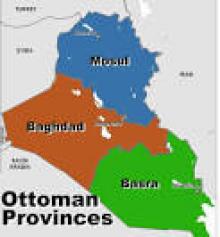 Baghdad Without a Map
Baghdad Without a Map Banshee Cries (the walker papers)
Banshee Cries (the walker papers)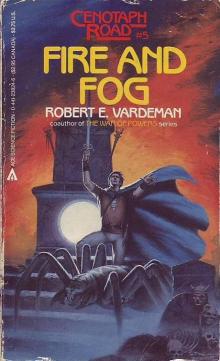 Fire and Fog cr-5
Fire and Fog cr-5 The Twelve Hot Days of Christmas
The Twelve Hot Days of Christmas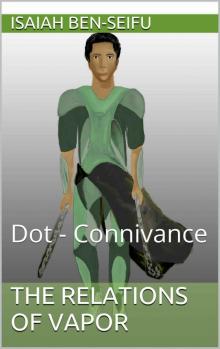 The Relations of Vapor: Dot - Connivance
The Relations of Vapor: Dot - Connivance![Harris, Daisy - Mere Temptation [Ocean Shifters 1] (Siren Publishing Classic) Read online](http://i1.bookreadfree.com/i2/04/11/harris_daisy_-_mere_temptation_ocean_shifters_1_siren_publishing_classic_preview.jpg) Harris, Daisy - Mere Temptation [Ocean Shifters 1] (Siren Publishing Classic)
Harris, Daisy - Mere Temptation [Ocean Shifters 1] (Siren Publishing Classic)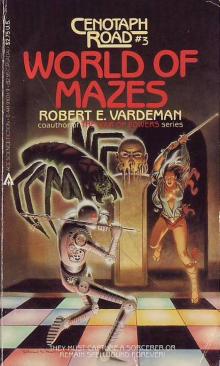 World of Mazes cr-3
World of Mazes cr-3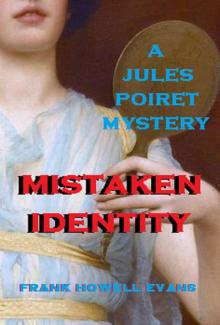 Mistaken Identity (A Jules Poiret Mystery Book 26)
Mistaken Identity (A Jules Poiret Mystery Book 26) Star Trek - DS9 - Fall of Terok Nor
Star Trek - DS9 - Fall of Terok Nor Not Like I'm Jealous or Anything: The Jealousy Book (Ruby Oliver)
Not Like I'm Jealous or Anything: The Jealousy Book (Ruby Oliver) Skaterboy by J. M. Snyder
Skaterboy by J. M. Snyder The Sorcerer_s Skull cr-2
The Sorcerer_s Skull cr-2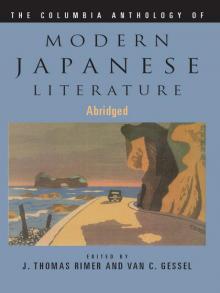 The Columbia Anthology of Modern Japanese Literature (Modern Asian Literature Series)
The Columbia Anthology of Modern Japanese Literature (Modern Asian Literature Series) New Erotica 5
New Erotica 5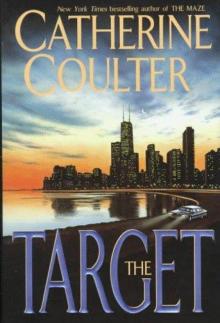 Catherine Coulter - FBI 3 The Target
Catherine Coulter - FBI 3 The Target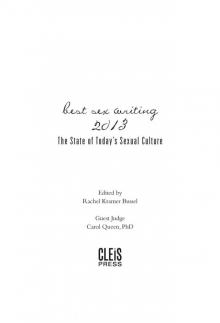 Best Sex Writing 2013: The State of Today's Sexual Culture
Best Sex Writing 2013: The State of Today's Sexual Culture Factoring Humanity
Factoring Humanity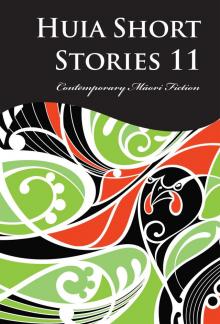 Huia Short Stories 11
Huia Short Stories 11 Call of the Wilds
Call of the Wilds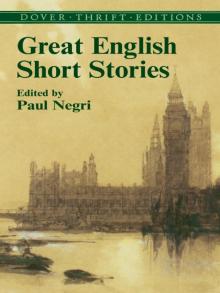 Great English Short Stories (Dover Thrift Editions)
Great English Short Stories (Dover Thrift Editions)![Ramagos, Tonya - Logan's Lessons [Sunset Cowboys 2] (Siren Publishing Classic) Read online](http://i1.bookreadfree.com/i2/04/10/ramagos_tonya_-_logans_lessons_sunset_cowboys_2_siren_publishing_classic_preview.jpg) Ramagos, Tonya - Logan's Lessons [Sunset Cowboys 2] (Siren Publishing Classic)
Ramagos, Tonya - Logan's Lessons [Sunset Cowboys 2] (Siren Publishing Classic)![Morgan, Nicole - Sweet Redemption [Sweet Awakenings 1] (Siren Publishing Allure) Read online](http://i1.bookreadfree.com/i2/04/10/morgan_nicole_-_sweet_redemption_sweet_awakenings_1_siren_publishing_allure_preview.jpg) Morgan, Nicole - Sweet Redemption [Sweet Awakenings 1] (Siren Publishing Allure)
Morgan, Nicole - Sweet Redemption [Sweet Awakenings 1] (Siren Publishing Allure) Warbirds of Mars: Stories of the Fight!
Warbirds of Mars: Stories of the Fight!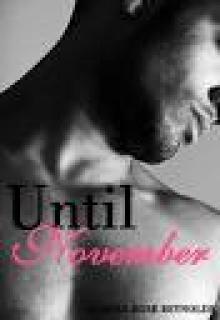 Original Version of Edited Godwin Stories(lit)
Original Version of Edited Godwin Stories(lit) Where The Hell is Boulevard?
Where The Hell is Boulevard?![Chemical [se]X Read online](http://i1.bookreadfree.com/i2/04/13/chemical_sex_preview.jpg) Chemical [se]X
Chemical [se]X Allison Brennan - See No Evil
Allison Brennan - See No Evil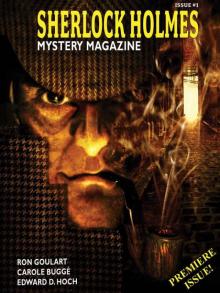 Sherlock Holmes Mystery Magazine #1
Sherlock Holmes Mystery Magazine #1